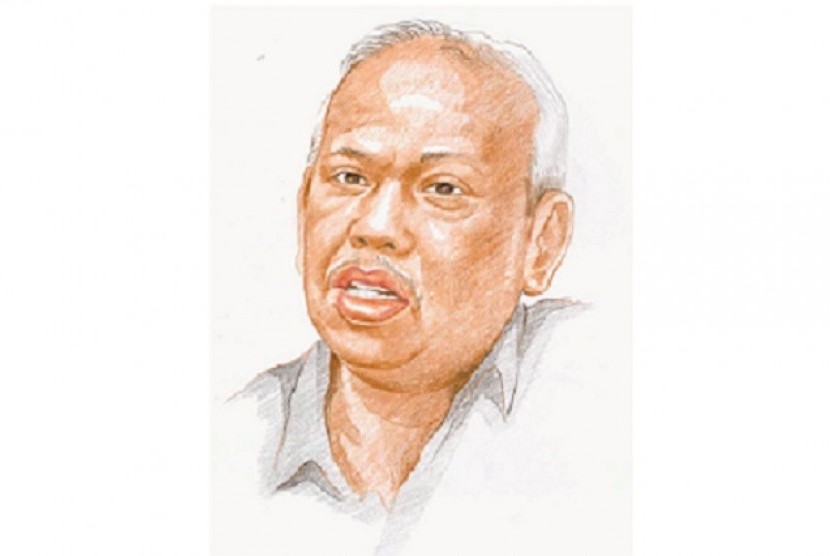REPUBLIKA.CO.ID, By: Azyumardi Azra
At least in the last 10 years, Diplomacy in many countries is not only the hegemony of the Ministry of Foreign Affairs or trade in numerous other countries. The complexity of the problems in certain countries, now can immediately spread to other world regions due to globalization and its spread of information instantaneously and spaciously.
Such rapid dissemination of information coincided with an increase in people traveling from one place to another is not necessarily to be able to foster mutual understanding among people or groups of people differently. Conversely, it could be seen misperception and inaccurate view that tends to strengthen each other in the community-including religious communities-and the nation.
Misperception that often accompanied the attitude of suspicion and hostility grew rapidly since the late 1990s when it appeared the discourse, for example, about the "clash of civilizations". Although theory and argument of Samuel Huntington, a political science professor at Harvard University, about the clash has been sued many other experts, still misperceptions and phobias is growing fast, especially against Islam and Muslims.
In that context, importance and urgency of diplomacy seen more than conventionally conducted by the Ministry of Foreign Affairs. Conventional diplomacy is no longer sufficient. Therefore, there needs to be involvement of various stakeholders in the wider community of so-called public diplomacy. Because of that, public diplomacy is often referred to as total diplomacy.
Indonesia is one country in the world that is quickly making public diplomacy as an integral part of the overall diplomacy. To that end, the Government of Indonesia in this case the Foreign Ministry, to form the Directorate General of Information and Public Diplomacy (IDP) in 2001. Through the IDP DG, Indonesia can do total "diplomacy" at the international level by involving various stakeholders in the country.
In its development, public diplomacy or total diplomacy in Indonesia emphasize two important points. First, the compatibility of Islam with democracy-given that Indonesia is the country with the largest Muslim population, the highest in the world. In contrast to many other Muslim-majority countries in the Middle East, Africa, and South Asia where democracy can not grow well, in Indonesia became a model where Islam and democracy can go hand in hand.
Second, public diplomacy also stressed the distinction of Indonesian Islam that is moderate, inclusive, tolerant Islam that seeks to actualize rahmatan lil 'alamin. Islam Indonesia with character as it is a symptom counter narrative of radicalism, violence and terrorism committed in the name of Islam by certain Muslim individuals or groups in various places on earth.
Since the beginning of the new millennium, the author of "Resonance" has been involved in many activities organized public diplomacy Indonesian Ministry of Foreign Affairs who often cooperate with the Ministry of Religious Affairs or other ministries concerned. Indonesia's public diplomacy, especially regarding two main themes were held in many places in Asia, Europe, America, and Africa.
The author of "Resonance" was fortunate to researching and writing articles that discusses the relative public diplomacy of Indonesia. Titled "Indonesia's Middle Power Public Diplomacy: Asia and Beyond" in January Melissen & Yul Sohn (eds), Understanding Public Diplomacy in East Asia: Middle Powers in a Troubled Region (New York: Palgrave McMillan, 2015), the authors argue, through public diplomacy , Indonesia sought to play a bigger role in international affairs.
At the same time Indonesia seeks to project a positive image as the third largest democracy in the world and at the same time as the country with the largest Muslim population in the world. The second distinction is rapidly becoming the identity of Indonesia as a "middle power" (middle power) in the constellation of the world.
Academic study and discussion of public diplomacy public diplomacy is still relatively limited. In that context, the author of "Resonance" is a good chance to participate in round-table discussions on "Soft Power and Public Diplomacy in the Indo-Pacific: Emerging Models and Trends" organized Griffith University, Brisbane, Australia (18-20 / 5 / 2016).
Indonesia, especially in the time of President Susilo Bambang Yudhoyono, strongly emphasizes the use of soft power in diplomacy– a diplomacy that is both conventional and public diplomacy. In the view of the President, soft power can be more effective in public diplomacy than using hard power.
Although the implementation of public diplomacy Indonesia tends to decrease in recent years, retrospectively, the author of "Resonance" can conclude that Indonesia takes the leading position in a subject related to two main themes earlier. It could be said, there is no other majority Muslim country that is so active in the promotion of compatibility of Islam and democracy and at the same time Indonesian Islam is moderate and inclusive.


